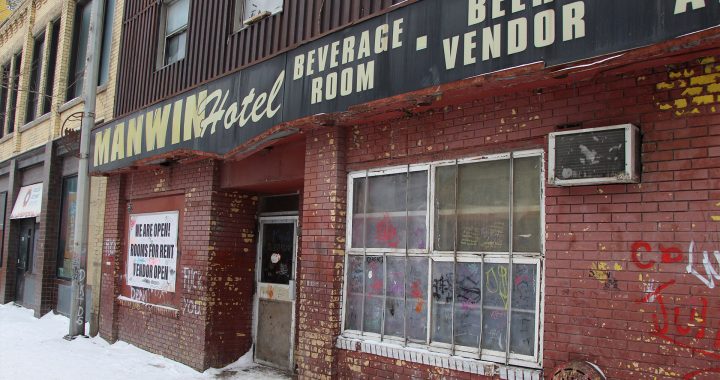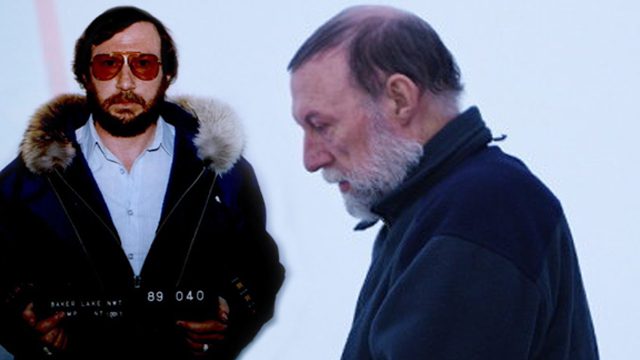(Indigenous Affairs Minister Carolyn Bennett (4th from the left) met with leadership and community members in Attawapiskat Monday. Photo from Carolyn Bennett’s twitter feed)
Annette Francis
APTN National News
ATTAWAPISKAT — After getting off the flight from Timmins, Indigenous Affaris Minister Carolyn Bennett and NDP MP Charlie Angus headed to the centre of Attawapiskat to where a number of young people were waiting to have their say.
The meeting began with an opening prayer and then went right into statements and questions from a number of young people like Robert Sutherland, 20, who was first to the podium.
“Tell me why we First Nations live in third world conditions,” Sutherland asked. “Why is it so easy for the government to welcome refugees and offer them first-class citizenship in our country? When will Canada wake up and open its eyes to First Nations communities?”
Bennett is in the community to meet with officials and to hear from youth and families. The open door meeting took approximately two hours.
So inspiring #Attawapiskat Youth-nd4 secure personal cultural identity,youth centre,land-based prog,healing #cdnpoli pic.twitter.com/MfjB6ZpLc5
— Carolyn Bennett (@Carolyn_Bennett) April 19, 2016
In the end, the minister committed to a youth centre and programming. In addition, a youth delegation from across the region will be invited to Ottawa.
“It is about us just deciding to work together. Listening to the youth. Listening to chief in council,” said Bennett. “What are their priorities and how do we make it happen across government departments and across jurisdictions.”
Grinning ear to ear, Sutherland said he’s pleased with the first meeting. In spite the hardships in the community, there’s hope.
“When they said they’re gonna approve our youth centre, our youth site, that’s the main goal to bring in some programs to bring back self-identity, activities, I’m happy and a lot of youth are happy,” said Sutherland.
https://twitter.com/OntarioAdvocate/status/722192289351774208
The Provincial Advocate for Children and Youth, Irwin Elman, was witness to the meeting. Elman spent the weekend in the community, talking with families, children and youth.
Elman said he sensed the young people felt good about the meeting, but he remains cautiously optimist.
“The proof is in the pudding and I think we have to see what come of it,” said Elman. “A youth centre is very important, but they need to begin to make that real and start planning.”
He said there’s a real deficit in the community including housing, and mental health supports. If you rest that youth centre on the foundation of services that perhaps don’t exist, that youth centre could have a hard time being successful.
We had profound meeting with Attawapiskat youth. Will build youth centre, support programming, healing plans and youth delegation to Ottawa
— Charlie Angus (@CharlieAngusNDP) April 19, 2016
Charlie Angus, the NDP Indigenous Affairs critic, called it an important beginning in ending what he called this “cycle of despair.”
“I’m pleased we have something deliverable for the young people,” Angus said. “Is this enough given the extent of the crisis that has faced Attawapiskat? No, it’s not enough yet, but we have to start with this first step.”
Speaking briefly after her meeting with the chief, Bennett noted larger issues such as the acute shortage of housing, the desire for a healing lodge as well as the ongoing concerns of the youth.
All levels of government and departments need to work together to “provide hope and a plan,” she said.
“The chief is very clear: we need to work no longer Band-Aid and piecemeal.”
Shisheesh said he’s happy with what had been achieved.
“The meeting was good and we’re getting somewhere,” he said.
But how quickly anything will change remains to be seen. The youth centre, for example, did not carry an immediate dollar figure.
In the interim, the youth of Attawapiskat said they’re tired of waiting for an acknowledgement of their struggles.
A huge part of the problem, they say, some of them tearfully, is that young people have lost a sense of who they are.
“If we can restore the self-identity to our youth, it gives them something to stand on, it gives them something that’s theirs, it gives them something good to live for,” Sutherland said.
“We don’t ask for much.”
— with files from the Canadian Press










